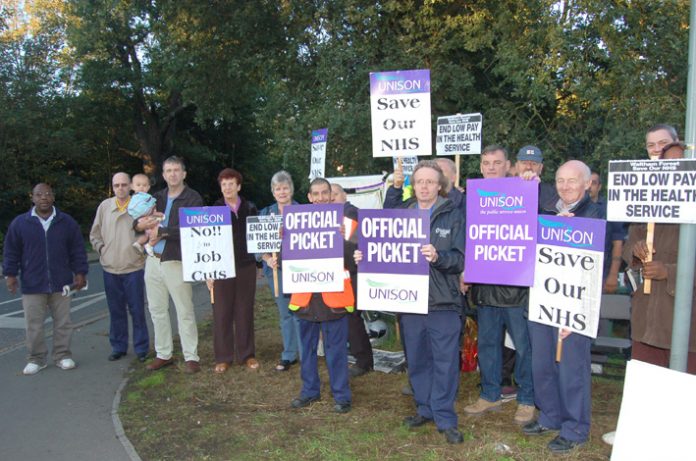
Public sector union UNISON yesterday slammed Blair’s ‘reform agenda’ as being to blame for NHS deficits, and the British Medical Association (BMA) called on health secretary Hewitt to back off from insisting the NHS must be £250m in surplus by April 2008.
Commenting on the Department of Health’s ‘Operating Framework’ plan, Dr Jonathan Fielden, chairman of the BMA’s consultants’ committee said: ‘The NHS is currently under intense financial pressure and most NHS trusts are having to make rapid cuts in jobs and services, with often dramatic effects on patient care.
‘Operations are being delayed, jobs are being frozen, and trained doctors and other healthcare staff are struggling to find jobs, while the NHS attempts to get its finances sorted.
‘Meanwhile, NHS money is being siphoned into the private sector through generous, guaranteed contracts to provide care for NHS patients.
‘It is extremely disappointing to see that the NHS accounting rules, known as Resource Accounting and Budgeting (RAB), remain intact. This artificial accounting measure has imperilled many NHS trusts unnecessarily and forces short term cuts directly impacting on patient care.’
He concluded: ‘It does not make sense to ask trusts to jump through yet more hoops and risk damaging patient care even further.’
Karen Jennings, UNISON Head of Health said: ‘Short term targets have inflicted an unnecessary level of pain on communities and staff.
‘It is the government’s own reform agenda and long-term debt that is to blame for the deficits, not individual trust management.
‘Getting even is made even harder by the double whammy delivered by the unsuitable RAB formula.
Deducting from the following year’s budget the amount the trust is in debt is not a recipe for success.
‘In addition, private sector treatment centres have fuelled trust debt. £5bn has been handed over to private companies who have feather-bedded five year contracts, guaranteeing them payment regardless of the number of operations they actually carry out.
‘Targets on preventing cross infection need to be discussed with staff and trade unions if they are to be effective.’
The NHS ended the last financial year £512m in deficit and many hospitals are ‘technically bankrupt’, but Hewitt has pledged to balance the books by the end of this financial year in April 2007.
However, the latest predictions are that the NHS will have a £94m shortfall this year.
Hewitt said yesterday: ‘By the end of March next year, we will have the NHS as a whole in financial balance.
‘So in the next financial year, the NHS should expect to make a financial surplus.’
She claimed: ‘If every hospital was doing as well as the top 25 per cent, over day-case surgery and length of stay, the NHS would realise over £2 billion to invest in other services and new drugs.’
She said that this would save beds and sometimes require fewer staff.
Hewitt added that trusts not able to balance the books in one year, would be required to balance the books each month.
She added that when the NHS as a whole was back in balance, the government would look at changing the way the accounting system counted debts built up over previous years.